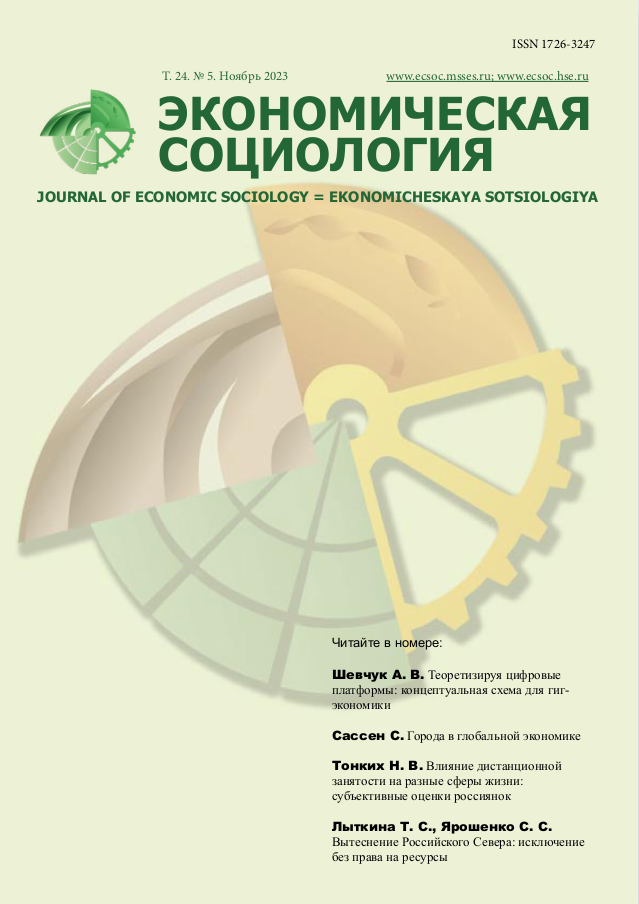Expulsions of the Russian North: Exclusion Without Rights to Resources
Abstract
Based on the materials of the sociological research carried out within the framework of qualitative methodology, the analysis of nature use practices and attitudes to them of the Russian citizens in general and the local community in particular is offered. The developed concept of expulsion assumes the systemic reproduction of the periphery within nation-states and is characterised by the low potential of local communities to influence the formation of development strategies in a region characterised by rich natural resources, as well as limited opportunities for its inhabitants to engage in meaningful activities and manage their personal life situations in a harsh climate and expensive living conditions. It is argued that modern practices of nature management represent consumer and quasitraditional strategies of development of the North. They do not contribute to the formation of sustainable strategies for the development of territories, despite the growing critical attitude of the region’s residents to the current situation and awareness of the deprivation of their right to own and dispose of land and natural resources. Expulsion is the result of the institutionalisation of prolonged and multiple practices of social exclusion. Institutionalisation is triggered by environmental management policies that ignore the interests of indigenous people and, as a consequence, make it difficult to defend the common interest of Northerners. It is characterised by an awareness of the injustice of this situation, reinforced by individual defence strategies and supported by five mechanisms: the mythologisation of the well-being of the North, the exploitative way of developing natural resources, the transfer of the costs of their extraction to the inhabitants of the region, the neglect of the interests of local communities, the promotion of migratory attitudes and the identity of temporary workers. The rule of access to benefits through the workplace, which has been preserved since late Soviet times, is not coping with the new challenges. As a result, resources are extracted in some regions and profits are channelled to other, usually more developed, regions. In the northern regions, where natural resources are extracted in this way, different types of dependencies are formed and impoverishment occurs.













